Property Geek
We provide the actual and accurate information with unbiased user driven reviews to our viewers, to help them see the best and find the best!
View posts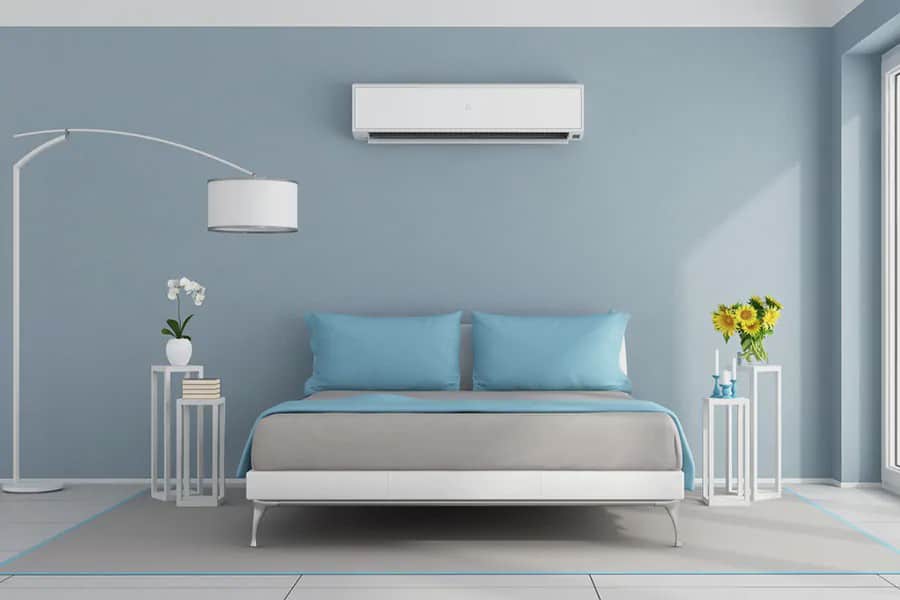
Air conditioners have become one of the most crucial requirements for every household. Summers can bring about unbearable heat. If you can’t bear the heat, you need to get an efficient and functioning AC unit for your house.
It won’t be wrong to assume that air conditioners have become an important electrical appliance in every household. The air conditioning market is enormous. Therefore, researching the types of AC can help you find the perfect one for your house.
It is advisable to research the types of AC because it will be taking up a significant amount of your home appliance budget. Moreover, making the right choice will provide you with efficient cooling and reduce energy consumption. There are different types of ACs, and each of them has a benefit to serve.
Before you set out to buy an AC for your house, you should know about the different types of air conditioners. The most beneficial ones include the following:
The various types of air conditioners will play a significant impact in determining your comfort. Some of the key ones include:
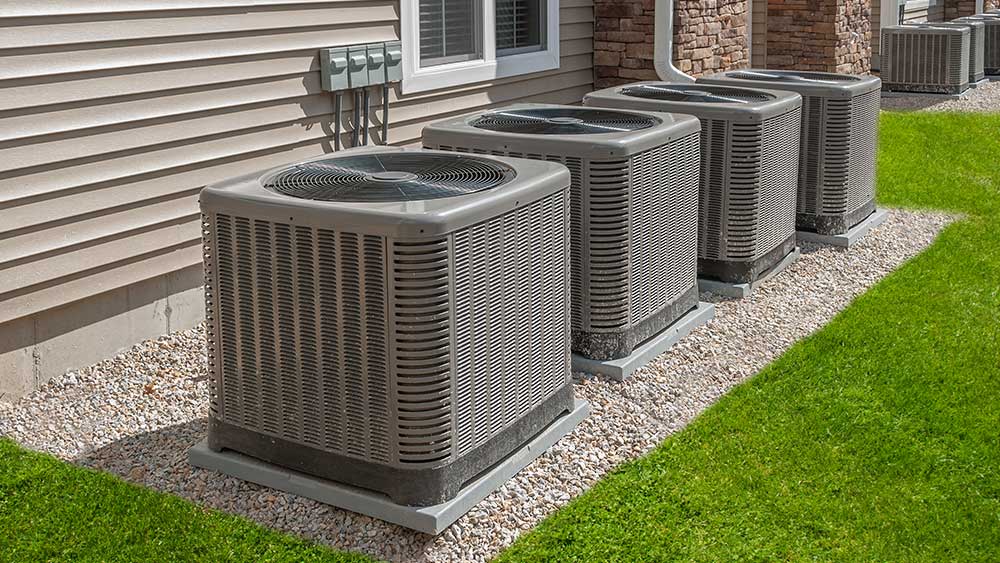
Central air conditioners are most commonly used for big houses with multiple rooms or commercial spaces such as malls, theaters, industrial areas, and more. The central air conditioner features a split system responsible for regulating air using the ducts around the house. Due to the excessive use of ducts, it is also known as the ducted AC system.
The split further helps to determine that the air conditioner is a combination of two main units. The outdoor unit consists of a compressor and condenser, while the indoor unit has an air handler and evaporator coils.
Like other air conditioners, the central air conditioner uses a refrigerant to remove the heated indoor air. The heat is pulled out while the fresh and cool air is pushed into the house using ducts.
With the help of modern HVAC technology, programmable thermostats have also been installed in these central air conditioners. The installation of a programmable thermostat has contributed to a smart home experience.
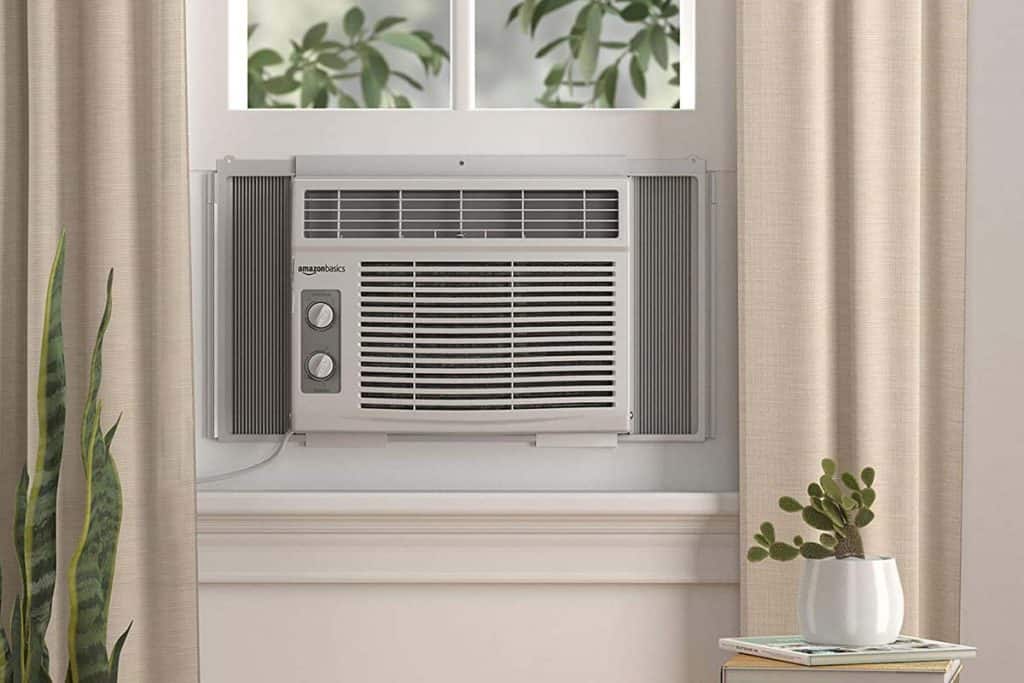
The window air conditioner was one of the most commonly used air conditioners earlier. If you want to cool a single room or small space, these air conditioners can serve the purpose right.
The best part about window air conditioners is that they are available in different sizes. Whether you want to cool down a small or large room, these can be the best choice.
The window air conditioner features a single unit responsible for removing warm air and allowing the entry of cool air into the house.
The window air conditioners have filters that need to be cleaned regularly. Regular cleaning of the air conditioner will help maintain the AC’s efficiency, thereby bestowing a longer lifetime. Many of these also have a remote to determine control.
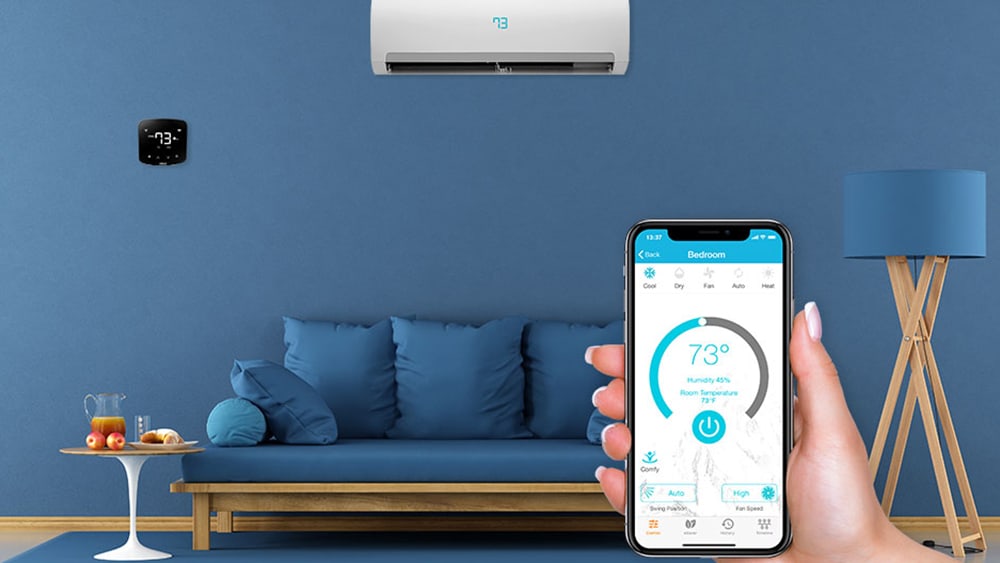
How about having an air conditioner that you can control with one click of your phone? Smart air conditioners can be any type of AC as long as they are enabled with IoT or Internet. These types of ACs are connected via WiFi, thereby allowing the owner to control it from any part of the world.
Smart air conditioners have a lot of functionalities to serve, such as geofencing, comfort mode, temperature range control, etc. If you use these air conditioners strategically, you can save a significant amount of money while increasing the level of comfort in your house.
The smart air conditioner controllers can provide all benefits that your ducted unit can offer—these function in the same manner as programmable thermostats.
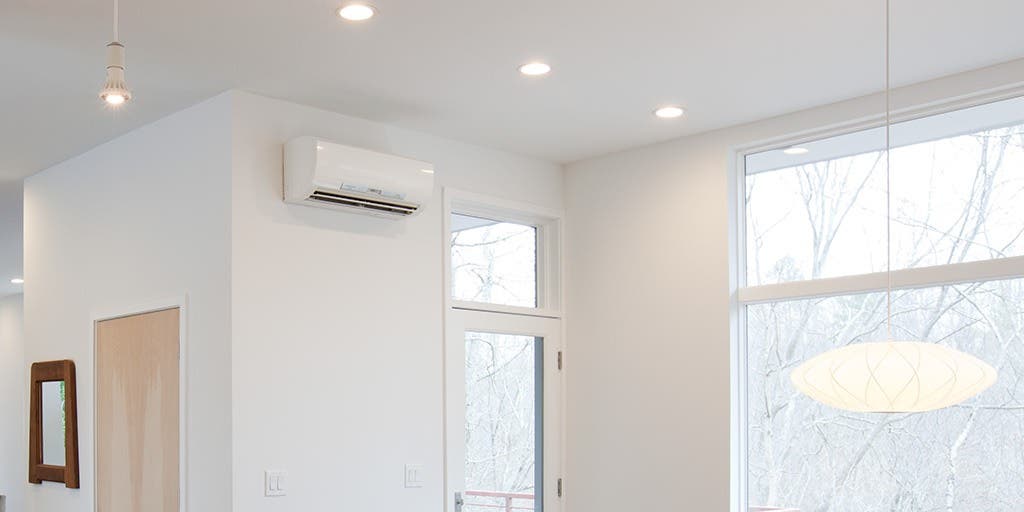
If you don’t want to install ducts around your house, you can always rely on ductless mini-split AC. Out of all the different types of AC, these have become extremely common in contemporary households.
This type of air conditioner features an outdoor unit combination of condenser and compressor with one or more indoor units. The indoor unit is attached to the wall and has air blowers.
The tube connects the indoor and outdoor unit while the refrigerant circulates air within the house. However, the air circulation will depend on how you’re using it within the house.
Compared to the outdoor unit, the indoor unit is compact and small. As a result, these can be easily installed indoors to promote energy efficiency. Although affordable, if you choose to install one unit in each room, these types of air conditioners can prove to be extremely expensive.
The ductless mini-split ACs usually feature a smart AC remote control that you can operate from anywhere as long as it is connected to your phone.
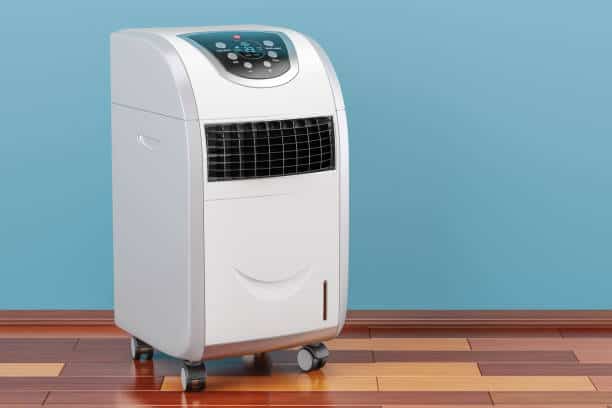
The portable air conditioner features a single unit where all the components are stored. Unlike other air conditioners, these are free-standing units that can be moved around the house depending on the requirement.
As long as you place it near a power outlet, these can function efficiently. It would help if you placed it near a window so that the air can be easily exhausted. Portable air conditioners will help provide temporary cooling.
These types of ACs aren’t as convenient as split or window AC. The portable air conditioners are practically small versions that you can install for your pets or in your bathroom.
The portable air conditioner features a single hose responsible for removing hot air from windows. In many cases, it may also have a dual hose responsible for removing hot air outside from one hose and driving cool air from another house.
The portable air conditioners are installed indoors, which eventually play an important role in offering evaporation and condensation. The evaporator fan regularly runs to enhance evaporation of the condensed moisture.
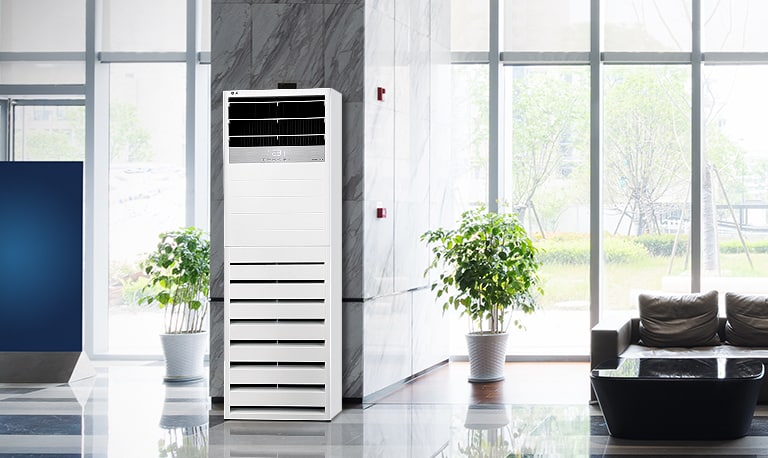
If you want a mini-split AC but do not have enough space on the wall for it, you can opt for floor-mounted AC. The indoor unit for the floor-mounted AC is kept on the floor, while the outdoor unit can be easily installed outdoors without worrying about ductwork.
The floor-mounted AC can prove efficient for tilted walls of fragile materials like glass. Homeowners have the liberty to install floor-mounted AC around six inches above the floor. You need to make a small hole in the wall to connect the indoor and outdoor units. One of the main benefits of having floor-mounted AC is that you can check the air filters.
You can clean it regularly when you have easy access to air filters. This eventually helps people who have respiratory problems. Furthermore, easy cleaning of air filters can also help maintain indoor air quality.
Comparatively, floor-mounted ACs can offer faster cooling because they blow air directly. However, the units mounted on a higher level usually take up more time for setting it up in the room properly. If you are installing floor-mounted ACs, you need to have enough free space around to allow uniform distribution of air. It would help if you refrained from installing these units around walls or furniture.
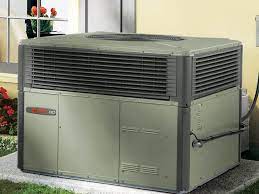
The dual fuel air conditioners are also referred to as hybrid air conditioners. The hybrid air conditioner features a combination of electric air-source best pump and gas furnace. This combination ensures that it can perform efficiently for providing an easy distribution of cooling and heating.
The dual fuel air conditioners feature an automatic functioning that ensures it will automate the temperature indoors depending on the outdoor temperature. This further plays an important role in saving electricity. However, you need to program the system accordingly for the dual fuel air conditioner to function efficiently. You can either use the heat pump switches or manual switches.
The heat pumps are designed to function efficiently during the summer season. It can quickly draw the hot air from indoors and remove it. During winters, it will regulate and distribute heat all around the house. If the temperature is too low, the heat pump will adjust itself effectively, and the furnace will start functioning to ensure heat distribution.
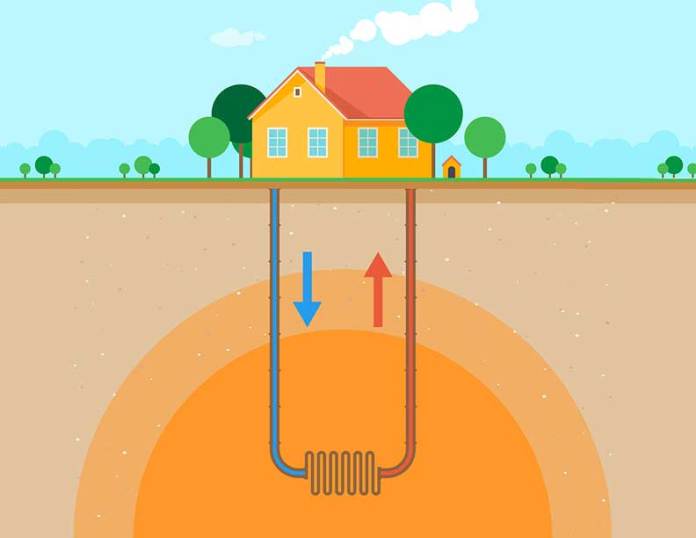
These are among the most efficient ACs that offer equal distribution of heat and cooling. Geothermal air conditioning is a very new concept, and therefore, not many houses have these installed around their home.
The geothermal air conditioning system uses the insulating property of Earth. The system is installed under four to six feet of land as the temperature remains constant around the year irrespective of the weather on the surface.
The use of geothermal technology will play an essential role in heating and cooling your house uniformly. The system is divided into loops of pipes that are responsible for circulating water around your house. However, the setup procedure for this unit can be highly complex because it needs to be done underground.
Now that you are aware of the types of air conditioners, you will need to decide on one accordingly. When choosing an air conditioner for your house, you will need to consider various factors.
Some of the common factors to look forward to while choosing an AC for your house include the following:
The modern-day air conditioners are available with star ratings to determine the system’s energy efficiency. The higher the energy efficiency, the lower will be the utility bill.
If the SEER rating is high, it will determine that the system is energy efficient. Details about the same are mentioned on the device itself.
Apart from ratings, your careful and smart usage will also play an important role in reducing utility bills.
How much is the AC unit capable of cooling? No matter what type of air conditioner you buy, you need to check the cooling power. The cooling power is usually measured in terms of the British Thermal Unit. If the BTU of the device is high, it will determine that the heating and cooling power of the device is comparatively high.
The BTU you compare will also depend on the size of your room, and it is always advisable to choose an AC that fits the size of your room. Moreover, this will also help to determine that the system consumes less energy while providing the most efficient heating and cooling.
You should always focus on space requirements when you get an AC unit. It is advisable to choose an AC unit that can easily fit your house.
Furthermore, it is also crucial to determine the ease of maintenance. The ease of maintenance will help to extend the lifespan of the unit. There are different types of AC brands in the market.
Before buying the AC, you need to check the space available in your house. If you don’t have enough time, it is advisable to use low-maintenance AC units.
Budget is one of the most important factors to consider while buying an AC. The higher the efficiency, the higher the budget will be. If you want a cheap and affordable option, you can go for portable and window air conditioners. However, these can cool a single room at a given point in time.
If you want to cool one or two rooms, you should opt for a ductless air conditioner. Since the smart ACs are of different times, you may want to compare the pricing of each unit to determine functionality and budget.
The central air conditioners are expensive but have a better lifespan as compared to other units. The geothermal AC units are the most expensive ones but can offer cooling to the entire house within a short period.
The different types of ACs have different efficiency levels, and it is advisable to do proper research about them to choose the right one for your house. Since air conditioners are an essential part of your household, you need to choose one that will offer maximum benefits. If your old air conditioner isn’t functioning correctly, make sure to get your hands on a new unit.
There are eight types of air conditioners. Each of these units has its pros and cons. The different types of ACs include:
When choosing the most effective air conditioner unit, you can rely on inverter ACs. Compared to your regular air conditioner, the inverter ACs tend to offer consistent cooling. Furthermore, the same temperature can be easily regulated using the compressor switches.
People wanting to know which AC saves the most energy need to check the energy ratings. Comparing EER and SEER can be of great help for understanding the energy-saving characteristics. Furthermore, it will also help you determine the affordability and utility bill consumption.